Literary rating: ★★★★
Kick-butt quotient: ☆☆☆
I recommended this novel mainly for fans of action-adventure/espionage fiction. It was also a bit of a head-scratcher for me –as well as for the main characters!– whether their adventure is actually in the realm of the supernatural or of science fiction. There are definitely elements that could be explained in terms of the latter. But we also have a scenario of supposed would-be supernatural intervention to usher in the end of the present world order, as described in the biblical book of Revelation (given the title, that’s hardly a spoiler), which is presumed to be a bad thing. (In books and films with that premise, it’s always presumed to be a bad thing).
A valid criticism that could be made of that whole sub-genre is that it’s theologically illiterate, regardless of whether you’re talking about Christian, Jewish, or Moslem theology. None of these faiths view God’s final action at the end of history, to deliver the righteous from evil and oppression and usher in an eternal order of true peace and justice, as a bad thing; and none of them imagine that it can be brought about or jump-started by demonic or human manipulation. A second valid criticism of this particular book, IMO, is that the integration of the supernatural and SF elements here is clunky and unconvincing.
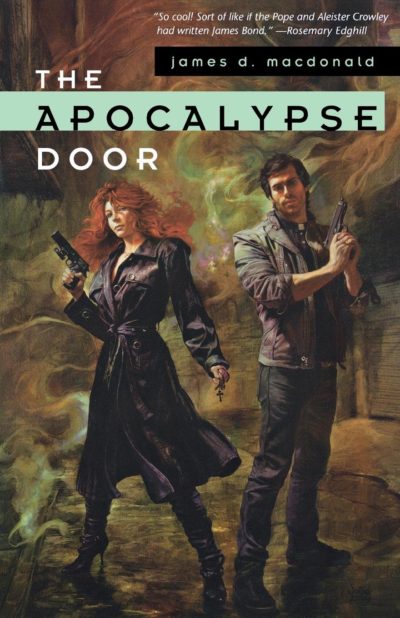 Those criticisms aside, however, this is a very gripping, exciting read, that moves along at a rapid pace right out of the starting gate. We have two distinct narratives here, alternating: a main one set in the author’s present (2002), laid out in the numbered chapters, and an earlier one from 1980, interspersed between each chapter in short sections titled “In-Country.” How the one strand is related to the other isn’t clear until near the end, although one connection comes into focus sooner than that. This is a challenging structure for a novelist to pull off, and to my mind Macdonald does it very well; both strands held my interest, and the rapid cutting between the two made for a constant cliff-hanger effect. I was completely hooked for both of them early on.
Those criticisms aside, however, this is a very gripping, exciting read, that moves along at a rapid pace right out of the starting gate. We have two distinct narratives here, alternating: a main one set in the author’s present (2002), laid out in the numbered chapters, and an earlier one from 1980, interspersed between each chapter in short sections titled “In-Country.” How the one strand is related to the other isn’t clear until near the end, although one connection comes into focus sooner than that. This is a challenging structure for a novelist to pull off, and to my mind Macdonald does it very well; both strands held my interest, and the rapid cutting between the two made for a constant cliff-hanger effect. I was completely hooked for both of them early on.
“Peter Crossman” is our narrator for the main narrative (he indicates at the outset that this is an alias). He’s an ordained Roman Catholic priest –and also a high-ranking Knight Templar, for our premise here is that after they were slandered and suppressed in 1307, the Templars continued to exist underground, and still operate today as a secret agency for fighting evil. Much of their M.O. is similar to secular counterparts such as the CIA or MI6. (Macdonald’s Templars are thoroughly orthodox Roman Catholics –there’s no attempt here to make them into closeted heretics.) For the particular assignment he’s been given, he’s assisted by a younger colleague whose performance he’s to evaluate, and he also soon gets the unexpected assistance of Franciscan (Poor Clare) nun Sister Mary Magdalene.
But pistol-packing Maggie’s not your typical nun; she works for the Clare’s Special Action Executive Branch –a distaff equivalent of the Templars– as an assassin. Another quibble here, even if you’re prepared to accept the idea that the forces of good can permissibly employ extra-legal lethal force against evil, is that the Clare’s leadership don’t vet their contracts very well; Peter and Maggie (who’ve met before) encounter each other here when she’s sent to kill him. (That’s not much of a spoiler; we learn it in Chapter 2.) Obviously, when she finds out that her mark is one of the good guys, she doesn’t carry out the hit; but in her shoes, that would make me seriously aware that something’s amiss back at headquarters! But that aspect isn’t explored. The ensuing mission, though, proves to be challenging, lethally dangerous, and twisty as a pretzel.
Peter’s narrative voice is streetwise and heavily leavened with wisecracking humor, with the perspective of a tough veteran of too many years of rough-and-tumble action that’s exposed him to the depths of what evil humans are capable of; he doesn’t have any illusions about his fellow men or himself. But his faith rescues him from cynicism, and the reality of the Divine and the spiritual is taken seriously here. (Macdonald was raised as a Roman Catholic, I don’t know if he practices now, but he knows the nuances of Catholic belief and practice.) Good use is also made here of Templar history, and the history of their disreputable offshoot, the Teutonic Knights.
This is a very quick read, with little bad language (a few vulgarisms, one f-word, and no profanity) and minimal violence; what there is isn’t graphic or dwelt on. Three stars is my best estimate for the kick-butt quotient; by her own admission, Maggie’s killed people in her line of work, and when the good guys have to throw lead here, she throws it right along with the rest -–though when the smoke clears and the bodies are counted, as in real life, it may not be easy or worthwhile to figure out who shot who. The one sex scene in the 1980 narrative isn’t very explicit, and occupies three short sentences. (Peter finds Maggie sexy, as most males would, in holy orders or not; but that’s just a morally neutral quality she happens to have, and both she and he take their celibacy vows seriously.) Our hero and heroine aren’t plaster saints, but unlike some reviewers, I didn’t find either of them “blasphemous” nor bad representatives of their faith.
This is a stand-alone novel, a fact that has pluses and minuses; I’m not looking to get sucked into another series, but I actually wouldn’t mind following Peter and Maggie as series characters! (The author has penned some Peter Crossman short stories, which I might look into.)
Author: James D. Macdonald
Publisher: Tor, available through Amazon, both for Kindle and as a printed book.
A version of this review previously appeared on Goodreads.





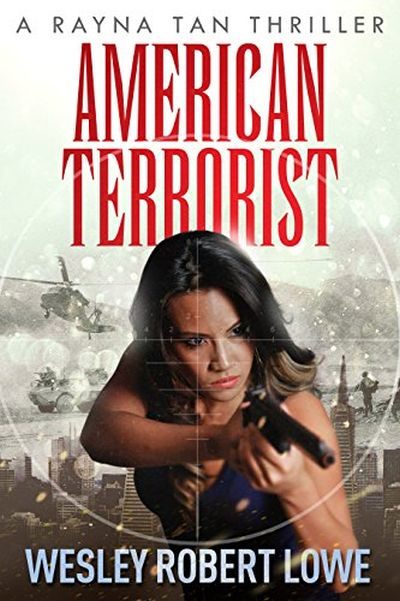 This was a disappointment, and a real chore to get through. If it had been a film, I’d have been reduced to surfing Facebook distractedly on my phone for the majority of its running time. Unfortunately, you don’t get to leave a book on in the background. It’s a stylistic and literary mess, throwing at the reader Canadian Special Forces heroine Rayna Tan, without providing any real background or character building beyond an incident in the Middle East. It then randomly switches around between her, a brother/sister pair of Islamic terrorists, Ahmed and Fatima, and their startlingly incompetent American recruits, who appeared to have strayed in from Four Lions. Throw in some unsubtle politicizing – even if I don’t necessarily disagree with the ideas expressed, it’s not what I want to read in my fiction – and it feels more like a half-finished collection of ideas than a coherent novel.
This was a disappointment, and a real chore to get through. If it had been a film, I’d have been reduced to surfing Facebook distractedly on my phone for the majority of its running time. Unfortunately, you don’t get to leave a book on in the background. It’s a stylistic and literary mess, throwing at the reader Canadian Special Forces heroine Rayna Tan, without providing any real background or character building beyond an incident in the Middle East. It then randomly switches around between her, a brother/sister pair of Islamic terrorists, Ahmed and Fatima, and their startlingly incompetent American recruits, who appeared to have strayed in from Four Lions. Throw in some unsubtle politicizing – even if I don’t necessarily disagree with the ideas expressed, it’s not what I want to read in my fiction – and it feels more like a half-finished collection of ideas than a coherent novel. It has been a while since I’ve scraped the bottom of the barrel of Mexploitation cinema: all those telenovelas don’t count, generally being well-produced and with reasonable production values. Just
It has been a while since I’ve scraped the bottom of the barrel of Mexploitation cinema: all those telenovelas don’t count, generally being well-produced and with reasonable production values. Just 
 I stumbled across this Russian TV series on Amazon Prime during our annual freebie month, but not until the final weekend, so wasn’t able to watch it there. Happily, I discovered the entire show has been uploaded to YouTube – embedded below, complete with English subtitles – and it’s well worth a watch. It’s set during World War II, and tells the story of two young women, from diverging backgrounds, both of whom are recruited in 1941, somewhat unwillingly. to act as intelligence operatives, during the early day
I stumbled across this Russian TV series on Amazon Prime during our annual freebie month, but not until the final weekend, so wasn’t able to watch it there. Happily, I discovered the entire show has been uploaded to YouTube – embedded below, complete with English subtitles – and it’s well worth a watch. It’s set during World War II, and tells the story of two young women, from diverging backgrounds, both of whom are recruited in 1941, somewhat unwillingly. to act as intelligence operatives, during the early day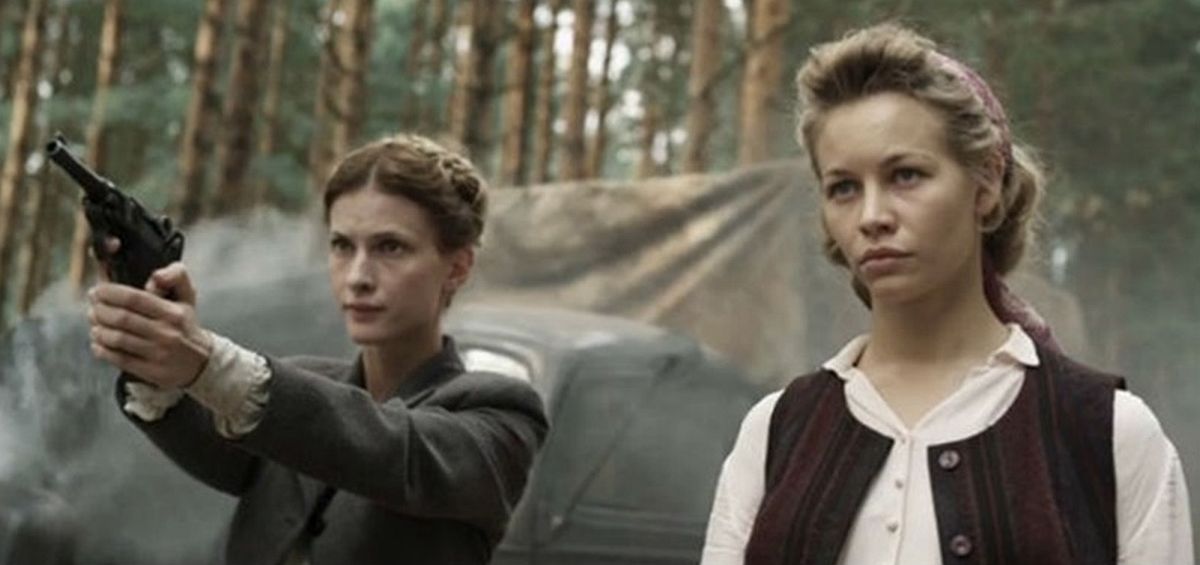
 Riley Connors (Kane) is a CIA analyst, who quits her job and blows the whistle on secret government surveillance programs. Having pulled an Edward Snowden, she hides out in Colombia, helped by the reporter who broke her story. Her peace is short-lived: a knock on the door proves to be a local cop, working in conjunction with Bill Donovan (Weber), her former CIA colleague and lover. He comes with a proposition. Help them take down a pair of shady Cuban banking brothers (Espitia and Browner) who are suspected of funding domestic terrorism, and she’ll be able to return to the United States, with the slate wiped clean. It’s a very risky proposition, even if her reputation as an enemy of the state might be the perfect “in” to the targets’ organization. But can Bill be trusted either?
Riley Connors (Kane) is a CIA analyst, who quits her job and blows the whistle on secret government surveillance programs. Having pulled an Edward Snowden, she hides out in Colombia, helped by the reporter who broke her story. Her peace is short-lived: a knock on the door proves to be a local cop, working in conjunction with Bill Donovan (Weber), her former CIA colleague and lover. He comes with a proposition. Help them take down a pair of shady Cuban banking brothers (Espitia and Browner) who are suspected of funding domestic terrorism, and she’ll be able to return to the United States, with the slate wiped clean. It’s a very risky proposition, even if her reputation as an enemy of the state might be the perfect “in” to the targets’ organization. But can Bill be trusted either?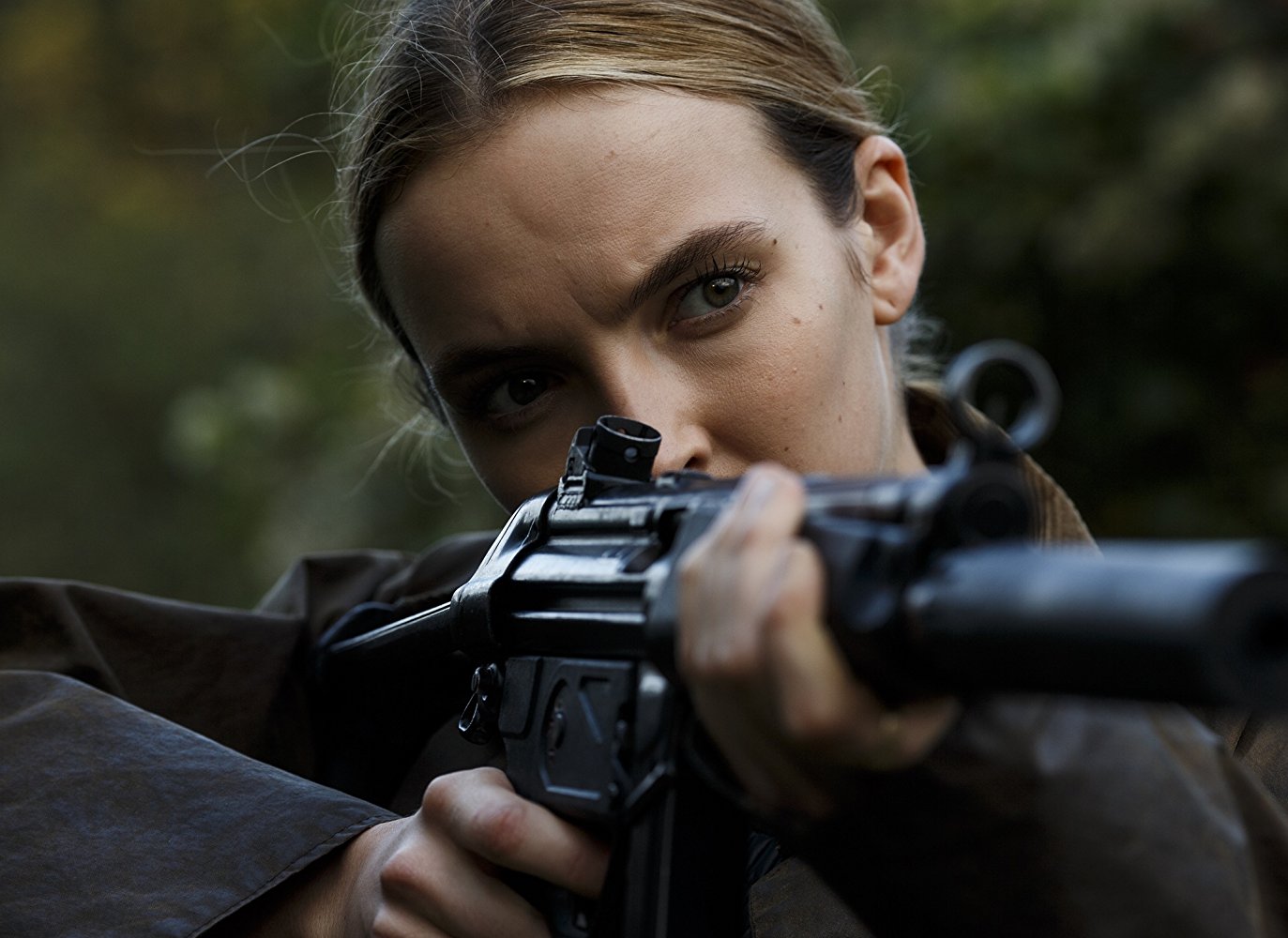 ★★★★
★★★★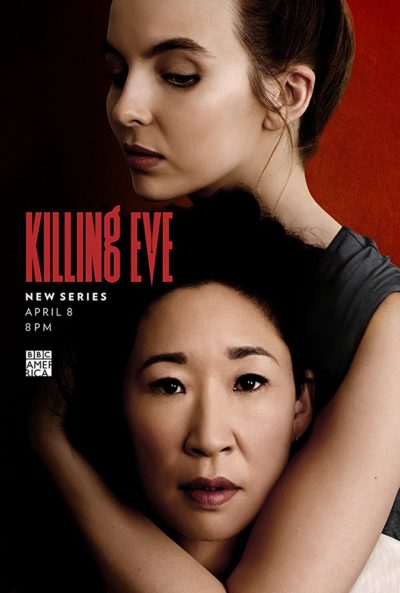 The show is defiantly messy in terms of its characters, who manage both to embody the stereotypes of the dogged law-enforcement official and the slick, femme fatale, while also subverting them. From the viewpoint of this site, Oksana is likely the more interesting. As a high concept, imagine a female version of Dexter: charming and affable on the surface, yet extraordinary lethal – and capable of flicking that switch in a moment. The difference is, Villanelle has chosen not to control and direct her “dark passenger” so much as embrace them fully, and is given the chance to do so by the profession into which she is recruited. It also allows her to indulge her fondness for haute couture.
The show is defiantly messy in terms of its characters, who manage both to embody the stereotypes of the dogged law-enforcement official and the slick, femme fatale, while also subverting them. From the viewpoint of this site, Oksana is likely the more interesting. As a high concept, imagine a female version of Dexter: charming and affable on the surface, yet extraordinary lethal – and capable of flicking that switch in a moment. The difference is, Villanelle has chosen not to control and direct her “dark passenger” so much as embrace them fully, and is given the chance to do so by the profession into which she is recruited. It also allows her to indulge her fondness for haute couture. There was a while there, where Russia dropped out of the top spot as far as being cinematic villains were concerned. No longer the “Evil Empire” of the Reagan era, they had largely been replaced, in the post 9/11 landscape, by Islamic fundamentalism. But now, those pesky Russkies are back as the bad guys once again, following their interference in the sacrosanct and solemn process of Americans electing a president. [I really must figure out a sarcasm font for this site] While this is supposedly set in the present day – I say that, because at one point, cutting-edge computer software is delivered on a set of floppy disks! – this feels more like something born out of Peak Cold War.
There was a while there, where Russia dropped out of the top spot as far as being cinematic villains were concerned. No longer the “Evil Empire” of the Reagan era, they had largely been replaced, in the post 9/11 landscape, by Islamic fundamentalism. But now, those pesky Russkies are back as the bad guys once again, following their interference in the sacrosanct and solemn process of Americans electing a president. [I really must figure out a sarcasm font for this site] While this is supposedly set in the present day – I say that, because at one point, cutting-edge computer software is delivered on a set of floppy disks! – this feels more like something born out of Peak Cold War. Not sure I’d go that far: I know it’s a great deal less
Not sure I’d go that far: I know it’s a great deal less 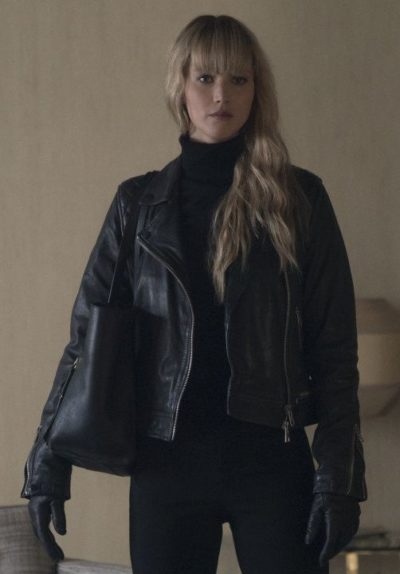 No, the main theme of the movie is the constantly shifting sands underfoot, which could easily open up at any moment and swallow the main protagonist. Some characters die during the course of the story, and it’s not necessarily the guilty ones who catch a bullet. But it’s a problem that there are hardly any sympathetic characters in the movie. Even Dominika is a big question mark, as the Russian secret service tactics force her to play a game of deception and manipulation, exactly as she was trained for. It leaves you, even at the end, guessing on which side she is/was/may have been on, in shades of Atomic Blonde. Things constantly change…
No, the main theme of the movie is the constantly shifting sands underfoot, which could easily open up at any moment and swallow the main protagonist. Some characters die during the course of the story, and it’s not necessarily the guilty ones who catch a bullet. But it’s a problem that there are hardly any sympathetic characters in the movie. Even Dominika is a big question mark, as the Russian secret service tactics force her to play a game of deception and manipulation, exactly as she was trained for. It leaves you, even at the end, guessing on which side she is/was/may have been on, in shades of Atomic Blonde. Things constantly change… I do give credit to Lawrence, who never saw an acting school from the inside, and has matured – yes, even by my standards! – into a “real actress”. I personally find it very positive that a studio is willing to make a movie almost entirely focused on its story with a nice budget ($69 million) instead of the next action-SFX-extravaganza. But I have seen better. That said, for those willing to invest the time and money, the movie may actually provide something. The actors are all good – I have not mentioned Mary Louise Parker in surprise cameo in the middle of the movie), the production design is impressive (even if Film-Russia seems to have a preference for 1970’s interior design) and the James Newton Howard (Salt, btw.) score is solid as always, even though it mainly plays in the background.
I do give credit to Lawrence, who never saw an acting school from the inside, and has matured – yes, even by my standards! – into a “real actress”. I personally find it very positive that a studio is willing to make a movie almost entirely focused on its story with a nice budget ($69 million) instead of the next action-SFX-extravaganza. But I have seen better. That said, for those willing to invest the time and money, the movie may actually provide something. The actors are all good – I have not mentioned Mary Louise Parker in surprise cameo in the middle of the movie), the production design is impressive (even if Film-Russia seems to have a preference for 1970’s interior design) and the James Newton Howard (Salt, btw.) score is solid as always, even though it mainly plays in the background.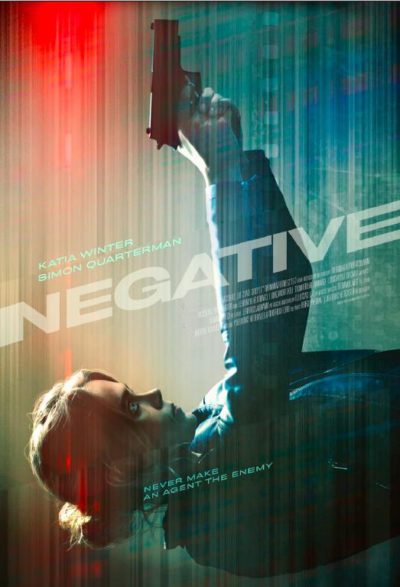 This is a very cunning title. For when you Google “Negative film review”, all you get are a lot of articles about Bright. Hohoho. [In five years time, people will probably have to Google “Bright” to understand this reference] Actually, it refers to a photographic negative, casually taken by Rodney (Roché) in the park. What he doesn’t realize at the time, is that he has accidentally captured the face of Natalie (Winter), a former MI-5 agent who is on the run. She turns up on his doorstep, demanding he turn over the photo to her, but before she can leave, the two Colombian assassins after her, also show up, and she has no choice but to take (the thoroughly confused and largely unwilling) Rodney with her. Together, they head for Phoenix and a safe house owned by Natalie’s former associate, Hollis (Quaterman), with the Colombians in pursuit.
This is a very cunning title. For when you Google “Negative film review”, all you get are a lot of articles about Bright. Hohoho. [In five years time, people will probably have to Google “Bright” to understand this reference] Actually, it refers to a photographic negative, casually taken by Rodney (Roché) in the park. What he doesn’t realize at the time, is that he has accidentally captured the face of Natalie (Winter), a former MI-5 agent who is on the run. She turns up on his doorstep, demanding he turn over the photo to her, but before she can leave, the two Colombian assassins after her, also show up, and she has no choice but to take (the thoroughly confused and largely unwilling) Rodney with her. Together, they head for Phoenix and a safe house owned by Natalie’s former associate, Hollis (Quaterman), with the Colombians in pursuit. So warbles Li Bing (Cheng), a second-generation thief who has abandoned the criminal life and now performs a cabaret turn which is part song-and-dance, part magic act. These efforts to go straight are derailed when her former partner (Lee) shows up, demanding shelter due to being pursued for a wallet he lifted. She agrees to help, only if he returns the stolen property: when they try to do so, they find the owner now lacking a pulse.
So warbles Li Bing (Cheng), a second-generation thief who has abandoned the criminal life and now performs a cabaret turn which is part song-and-dance, part magic act. These efforts to go straight are derailed when her former partner (Lee) shows up, demanding shelter due to being pursued for a wallet he lifted. She agrees to help, only if he returns the stolen property: when they try to do so, they find the owner now lacking a pulse.